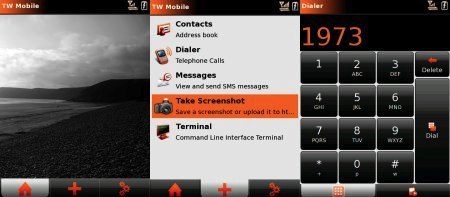
OpenMoko, the company behind the FreeRunner open-source phone, released their latest product today: WikiReader. It’s a small mobile device for browsing Wikipedia. Rather than use a wireless network to pull data off of the web, it has local copy of the database on a 8GB microSD card. This approach has been used before, and it lets the WikiReader be compact and really cheap. It uses a Kindle-esque touch-screen display that allows it to run on 3 AAA’s for about a year. The device itself costs just $99, but you can choose to receive updates by snail mail for just $29/year. Alternatively, you can just download the +4GB file and dump it on the card.
Like the FreeRunner, this project is also open-source. The code isn’t available yet, but they say it will be released soon. With luck, the device will be really easy to hack.













